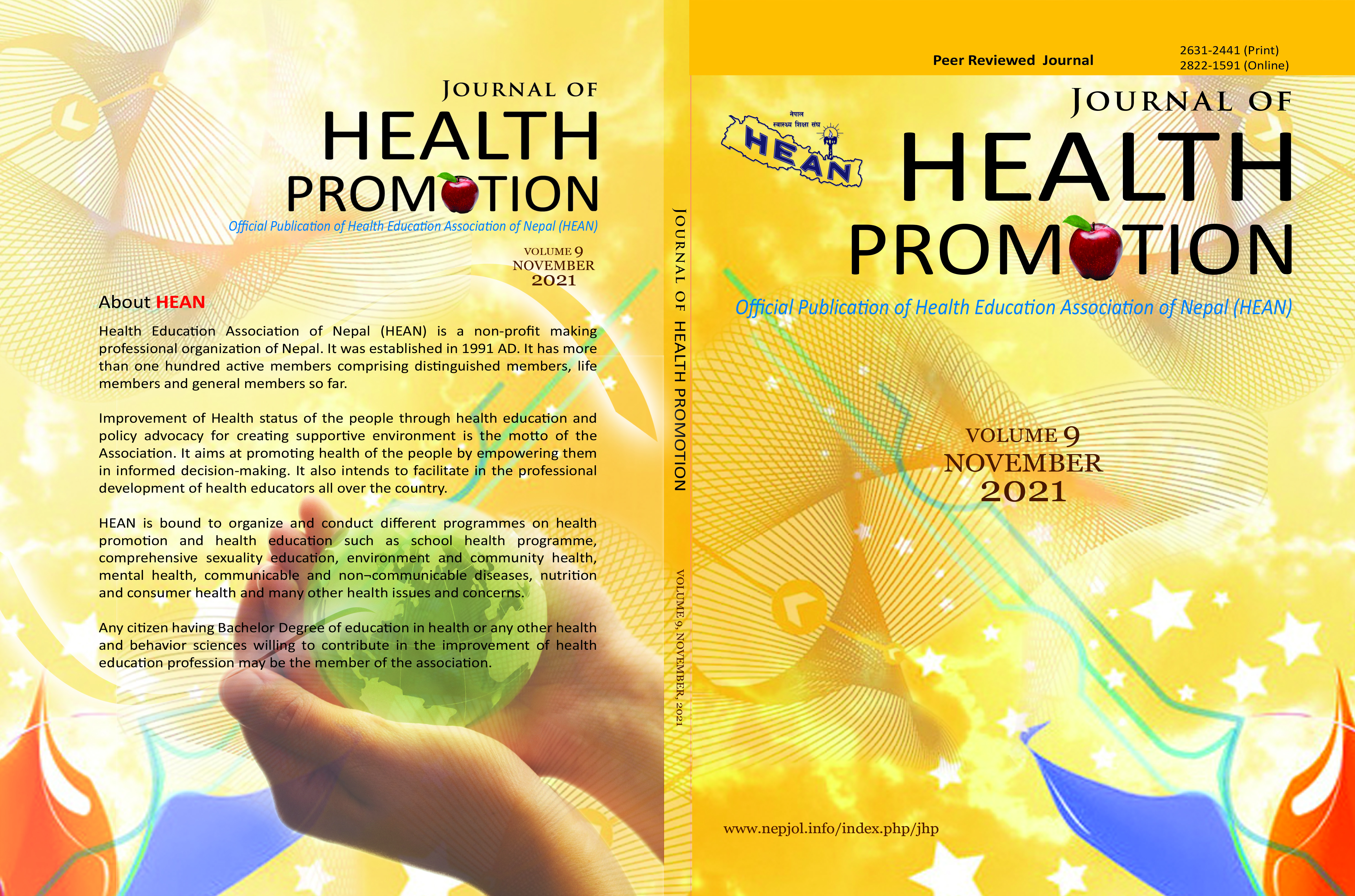Experiences of the COVID-19 infected persons during isolation in Nepal
DOI:
https://doi.org/10.3126/jhp.v9i01.40960Keywords:
COVID-19, Experience, Isolation center, Intervention, StressAbstract
Isolation is the separation and restriction of movement of people diagnosed with COVID-19 positive. Isolation is one of the best measures for preventing and controlling pandemics; however, it might be stressful. This study intends to explore the perceptions of COVID-19 infected people towards the COVID-19 pandemic and their experiences at Nepal's isolation centers with the broad theoretical frame of the transactional theory of stress and coping by Lazarus & Folkman (1986). This qualitative study was conducted in institutional isolation centers in Nepal's Morang, Rautahat, Sindhupalchowk, Tanahun, Banke, Surkhet, and Kailali districts. Thirty-five participants, five from every seven provinces, were selected using a purposive-convenient sampling method. Data were collected through interviews in the period of October to December 2020. The findings of the study have been presented in four different themes: personal and environmental attributes, perception of COVID-19 as a stressor, short-term outcome based on situation, and adoption of coping mechanism. There were individual differences in perceiving the COVID-19 as a stressor. Environment and available facilities acted as another source of stress. Similarly, anxiety, irritation, lack of sleep, loss of appetite resulted from stress while staying in isolation. Regarding the coping mechanism of the stress, most participants were found to use mobile phones, play games, watch movies, and talk to family members. We recommend emphasizing psychological intervention comprising meditation, outdoor games, yoga, and counseling in institutional isolation based on this study.
Downloads
Downloads
Published
How to Cite
Issue
Section
License
© Health Education Network (HEAN)
Authors are required to transfer their copyright to the Health Education Association of Nepal (HEAN).
The materials of this publication may be reproduced, reviewed and translated, acknowledging the source "Journal of Health Promotion".




